Today, I’m delighted to be hosting a stop on the Blog Tour for Wrong Way Home by Isabelle Grey, published by Quercus. For the tour I have an interview with the author herself discussing her new novel, her writing process and what she’s writing next.
The Blurb:
A cold case leads DI Grace Fisher on the hunt for the most dangerous killer of her career – but after twenty-five years, can she really be sure she will get to the truth?
The same night a local hero saved two people from the burning Marineland resort in Southend, a young woman was raped and murdered minutes from the scene of the fire, the culmination of a series of brutal rapes in the town. The killer was never found.
Twenty-five years on, new DNA techniques have blown the cold case open. DI Grace Fisher relishes the prospect of finally catching the culprit, but when the evidence doesn’t point to one clear suspect, she must reconstruct the original investigation. Any suggestion that the Essex force was less than thorough at the time could alienate her colleagues and destroy her chances of reaching the truth.
Grace finds her investigation shadowed by a young true-crime podcaster backed by veteran crime reporter Ivo Sweatman. As pressure mounts she cannot afford to be distracted. She knows that a cold-blooded killer is slowly being backed into a corner, and a cornered predator is often the most dangerous of all…
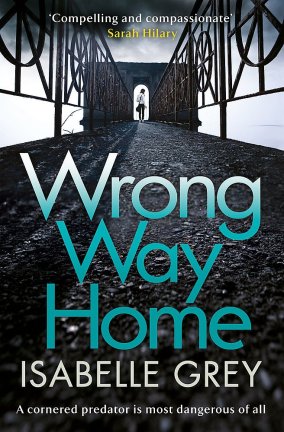
The Interview:
Welcome to the CKT blog, Isabelle.
To start off with, can you tell us a little bit about your novel, Wrong Way Home and what inspired the idea behind this investigation?
I became hooked on what it must be like for the police to go knocking on someone’s door after twenty-five years and say: you know why we’re here, don’t you? It’s an extraordinary moment for the detective and a life-changing event for the suspect who thinks he’s got away with his crimes, as well as for his family who might have no idea of who he really is. A lot can have happened in the intervening twenty-five years.
It occurred to me that this kind of story would also make a great true-crime podcast, so I introduced Freddie Craig, a young man desperate to break into crime reporting.
The whole book then slowly unfolded from there – with a fair bit of expert advice along the way.
Your novel features a cold case set twenty-five years ago. Did you find it difficult to research what the original investigation would have been like and insert this into a modern day investigation?
I’m old enough to remember how violence against women used to be handled. I remember, for example, Roger Graef’s hard-hitting 1982 TV documentary series Police which revealed how appallingly rape victims were treated, and also the shock of the first series of Prime Suspect, which showed the prejudice against a female officer in a senior role. A little later Jackie Malton, the DCI on whom Prime Suspect was based, became a friend, so I’ve learnt a great deal from her experience.
Plus, when DI Grace Fisher has to do the dogged police work that wasn’t done at the time, I loved showing how such painstaking door-to-door detail can pay off just as much as cutting-edge forensic science
DI Grace Fisher, your main protagonist, is not your stereotypical detective. For anyone who hasn’t read your novels, how would you describe Grace?
There are events in Grace’s past that make her root for the victim, to be sceptical about the powers-that-be, and, if necessary, to defy the official ‘line’ to get to the truth. Although she’d hate the idea of being some wounded ‘noir’ maverick, she nonetheless senses that she will always be a bit of an outsider. This makes her value the friends she has – even the loyal but disreputable tabloid crime reporter Ivo Sweatman. Grace has learnt not to care if she breaks the rules, but it’s not second nature – as it’s not for many women brought up to be ‘good’ girls.
Wrong Way Home is the fourth book in the DI Grace Fisher series. How do you manage to keep your series so fresh and exciting?
I suppose that fifteen years as a freelance journalist taught me to keep my antennae alive to what’s going on in the world and especially to shifts in attitude or understanding. Now I can’t help but let that awareness seep into what I’m writing, even unconsciously. Crime fiction has always been good at reflecting social shifts as they happen, and I also really admire TV series such as The Good Wife – now The Good Fight – that snatch hot new issues and feed them straight into drama. That’s exciting.
Can you tell us about your writing process; do you plot the story out first or just dive right in? Or a mixture of the two?
A mixture of the two. I have a good idea of what the set-up is and roughly where I’m going to take it, do enough research to open some unexpected avenues, and then start writing. Sometimes I have to unpick and go back a bit before I can go forwards again, but it’s worth it.
What books would you recommend for the devoted crime reader?
I’ve recently read Don Winslow’s The Force, which was a real moral and emotional rollercoaster. He brings the reader right up close alongside his protagonist, New York Detective Sergeant Denny Malone, so you feel the full tragic power of his story. I also love going back to earlier classics, everything from Daphne du Maurier’s Rebecca to Dorothy B. Hughes In A Lonely Place.
And finally, are you working on anything at the moment? If so, can you tell us a little bit about it without giving too much away?
I’m taking a little break from Grace Fisher to return to psychological suspense, writing a novel about women, ambition and motherhood. It’s inspired by a kind of mash-up of all my favourite post-war ‘noir’ movies, and by the spirit of the great screen actresses of that era.
Big thanks to Isabelle for letting me pick her brains!
Thank you, Rachel!
Also big thanks to Anne Cater and Quercus for inviting me to be a part of this fab tour.
About the Author:
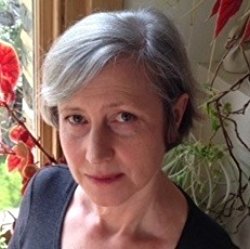
Isabelle Grey is a television screenwriter whose credits include Jimmy McGovern’s BAFTA award-winning Accused: Tina’s Story as well as over thirty-five episodes of Midsomer Murders, Casualty, Rosemary and Thyme, The Bill and Wycliffe. She has also written non-fiction and been a magazine editor and freelance journalist. Isabelle’s previous novels include two psychological thrillers, The Bad Mother and Out Of Sight as well as the first two books in the DI Grace Fisher series, Good Girls Don’t Die, Shot Through the Heart and The Special Girls. Isabelle grew up in Manchester and now lives in north London.
To find out more about Isabelle Grey follow her on twitter @IsabelleGrey.
Sound intrigued? If you haven’t read any of the series yet by Isabelle Grey I would highly recommend!
Wrong Way Home is the fourth in the DI Grace Fisher series and can be ordered from Amazon here.
As always don’t forget to check out all the other stops on this fabulous blog tour!
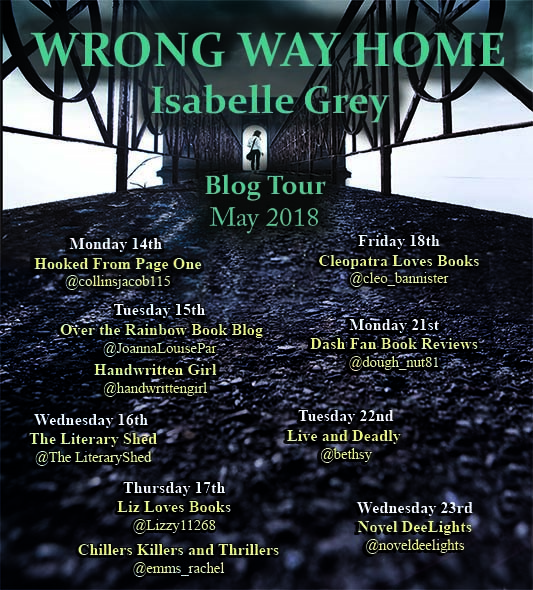







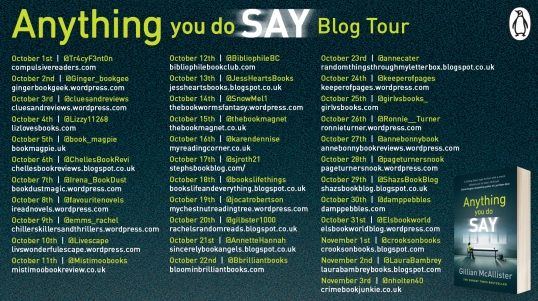












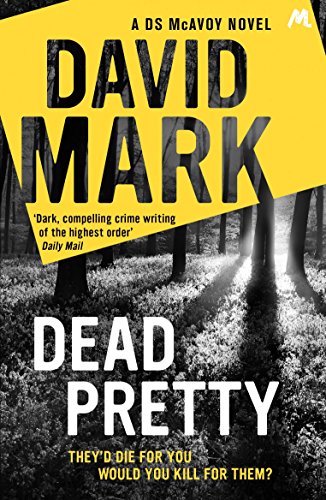
 Just for fun…if you could collaborate with one author, dead or alive, who would it be and why?
Just for fun…if you could collaborate with one author, dead or alive, who would it be and why?
